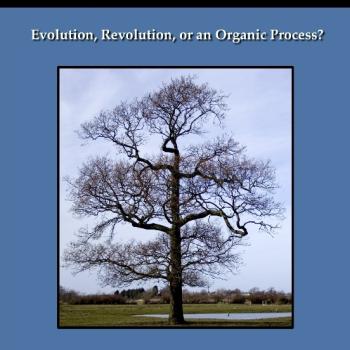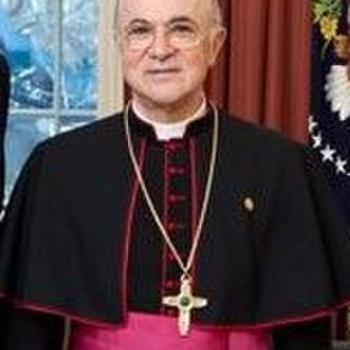
There isn’t any way to respond to this question on behalf of all Christians, or even all Christian denominations. There absolutely are Christians who believe in evolution and there certainly are Christians who reject it. In this short article, we will discuss a couple of the issues at play—issues which may explain why some embrace evolutionary theory and why others reject it.
False Assumptions
While I am not arguing that the reader accept or reject evolution, one of the first challenges to accepting both evolutionary theory and religion is the tendency for advocates of each camp to come to the table with false assumptions about the other. For example, some (from the scientific community) assume that all religious people are “non-scientifically minded morons” who embrace all kinds of “myth and nonsense” as history and fact—and none of them are “smart enough to understand” and listen to provable science. Of course, the flip side finds some in the religious community assuming all scientifically minded individuals are “faithless” or “godless” folks who have embraced “unprovable theories” while rejecting the one thing the world has accepted for millennia—the Bible!
While these stereotypes are occasionally true—for both groups—they are often not. What’s more, they are unhelpful in conversations about faith and science, and they suggest that there is a divide between the two that is unbridgeable and, therefore, any efforts and dialogue are pointless. As one source points out:
“…when either science or some form of biblical literalism becomes the dominant ‘informer’ in the dialogue, the result is ‘a false sense of invincibility that unduly hastens to close the channels of dialogue and critique.’
In other words, ‘war’ is not the proper metaphor for the relationship between science and faith, nor should we seek some uneasy detente where each is given its closed off pasture to roam in.
Instead, …envision a type of engagement where…neither ‘side’ of the discussion is delegitimized and where neither is allowed to become the overarching sacred metanarrative. The tensions between them are too real and ‘at best can be minimized but not eliminated.’
Science and faith [are] each a ‘complex communicative practice’ and their distinctness reflects ‘the spatio-temporal context of their practicing communities’; and the relationship between them is not that of ‘predator-prey’ but symbiosis.”
If scientists wish the religious to see “their side” of the argument, they will need to be more open and sympathetic to where their religious counterparts are coming from. And, if Christians wish to be taken seriously in such conversations, they too need to be more open to hearing their so called “opponent’s positions” and be more versed in the issues surrounding evolution in addition to what the Bible does and does not say about the matter.
Now, because the question at hand is about what Christians believe, we’ll focus our attention on the “believer’s” view of evolution, and not spend any significant time on the “scientific view” of religion—though there is plenty that could be said there as well. And, for the record, the question
“Do Scientists Ever Believe in Creationism?” is as valid as the query, “Do Christians Believe in Evolution?”
As it relates to “false assumptions” that confuse the issue, one study indicated:
“Although many scientists agree that evolution does not make claims about God/god(s), students might assume that evolution is atheistic, and this may lead to lower evolution acceptance… Approximately half of students [surveyed in the study] wrote that a person cannot believe in God/religion and accept evolution, indicating that these students may have atheistic perceptions of evolution… We found that 56.5% of students [in a different study] perceived that evolution is atheistic even when they were given the option to choose an agnostic perception of evolution. Further, among the most religious students, those who thought evolution is atheistic were less accepting of evolution, less comfortable learning evolution, and perceived greater conflict between their personal religious beliefs and evolution than those who thought evolution is agnostic.”
So, if a Christian comes to the table with the assumption that, in order to accept evolution, one also has to reject the existence of God, a very high percentage will outright reject evolution. And that false dichotomy may explain why a percentage of Christians do reject evolution. However, since evolution is not really about the existence or non-existence of God but, rather, about the development and evolving of various species, one can formally believe in evolution and still believe in the existence of the divine, to whom the creation of species is credited. Indeed, I recall (as a young boy) asking my father which view he subscribed to—creationism or evolution. His response was simply, “Creation, and then evolution.” In other words, he believed in a God that was the cause of all things and the creator of all things; but he also believed that the Creator (God) had allowed or caused His creations to evolve over time. My Greek Orthodox father didn’t learn this at Church (during the Divine Liturgy), but it was a product of his very logical mind, and his sense that there need be no contradiction between faith and observed scientific processes, if both are rightly understood. Many Christians take a very similar approach and have no heartburn over the relationship between science and religion. In his recent book, The Genealogical Adam and Eve: The Surprising Science of Universal Ancestry, S. Joshua Swamidass, MD, Ph.D. posits: “If we keep straight what the science is actually saying, the story of Genesis could be true as literally as you could imagine it, with Adam being created by dust and God breathing into his nostrils and Eve being created from his rib. But evolution is happening outside the Garden, and there are people out there who God created in a different way and who end up intermingling with Adam and Eve’s descendants. It’s not actually in conflict with evolutionary science.” While this is only one Christian’s view on the matter, it is an example of how Christians often embrace both evolution and Christianity—and how they explain what other Christians see as contradictions between the two. One may choose to reject Swamidass’ explanation, but his view shows how some practitioners of Christianity embrace both the Bible and evolution—and don’t feel heretical in doing so.
The Symbolic vs. The Literal
Another challenge some Christians face in embracing evolution in addition to their Christian faith is the dilemma as to whether one should read everything in the Bible as literal or (at least to some degree) symbolic. Christians are very divided on this approach to scripture. However, a read of the sacred text and an examination of Christian liturgy leads one to believe that much of what God has revealed is symbolic. Indeed, symbolism appears to be the language of God. Hence, all liturgical rites are draped in symbolism, most scriptural stories are saturated in symbolism, and so much of the “church experience” (particularly in high-church traditions) is symbolic on some level. Thus, if one reads something in the Bible literally when it was intended as symbolic, one might see conflicts where none actually exist. (I know some are going to find that a heretical statement. However, it is not intended to be. It is a fact that not all Christians agree on what parts of the Bible are intended as literal and what parts are intended as symbolic. Thus, taking literal something intended by God as symbolic will cause the reader problems.) Permit an example. In his book, The Science of God—The Convergence of Scientific and Biblical Wisdom, Dr. Gerald Schroeder—a “distinguished physicist and Biblical scholar”—examines whether science and the Bible are really at odds. “Schroeder demonstrates the surprising parallels between a variety of Biblical teachings and the findings of biochemists, paleontologists, astrophysicists, and quantum physicists… [He] argues that the latest science and a close reading of the Bible are not just compatible but interdependent.” Schroeder uses the Genesis creation account as his template and shows that nearly everything Genesis says about the creation matches what the big-bang theory says about the creation of the universe. In Schroeder’s view, it is as though Moses, a non-scientist, is trying to explain to his eventual readers what he learned, but he is hampered in his description by his own limited vocabulary and also by the assumption that his readership will no more understand the science behind all of this than he does. So, Moses does his best, and too many today criticize the text or its prophetic writer as getting it “wrong” when he was never seeking to explain the ins and outs of scientific theory in the first place.
In Schroeder’s view, Genesis has more right than wrong—and even the order of what was created and when Genesis gets right! (E.g., Gen. 1:20 describes God bringing forth “life” from “the waters” before any other life is brought forth. Could Moses actually be seeing the evolutionary process here?) Schroeder argues that God is a scientist who created the universe in a scientific manner (most likely through the big bang), and that there is no conflict between the science of creation and the biblical account of those same events. The only problem Schroeder sees is when scientists and believing Christians insist on reading everything literally. So, for example, the Bible speaks of the “seven days” of creation. Of course, the world “day” (used in the Genesis account) can mean (in Hebrew) a “time,” a “year,” a general “period,” or a literal 24-hour “day.” Also, the number “seven” (in Hebrew) is a long-established symbol for “whole” or “complete.” Thus, with “seven days” we have symbolically represented the “whole or complete creation of the earth or universe.” One can freely reject this interpretation; and doing so is fine. But it is also a legitimate way to look at the creation narrative, which is—after all—the telling of a story, as Moses (who was not there for the actual creation) is relating to the reader. And, if one accepts that the “seven days” timeframe is the only major contradiction between the big-bang theory and creationism, one might justifiably argue that there is zero problem in holding a biblically based faith and a scientific worldview.
In the end, evolution technically doesn’t argue for or against the existence of God, and the Bible doesn’t argue for or against evolution. Only people’s reading and interpreting of the Bible does that. And, just as theologians or believers should be cautious about reading into the Bible what it does not say, scientists should also be careful about generalizing about what the Bible or Christianity teaches on this issue. Not only are theology and the Bible not the scientist’s realm of expertise, but there also isn’t a universal Christian perspective on all of this.
So, can a Christian also be an evolutionist? Well, I know many who are; and they see no contradiction between the Bible’s account of creation and evolutionary theory. Oh sure, there are going to be “unknowns”—but there are already “unknowns” in theology and science anyway. While
I am not advocating for one view or another, I am suggesting that one can be a “believing” Christian without having to subscribe to this view or that. Some measure of evolution can be shown to be in harmony with the biblical creation account and Christianity generally. One must simply open-mindedly examine the issues—the science and the text—and decide for himself or herself what the Bible actually says on the matter and what the Spirit of God seems to confirm is the truth of the matter.
5/14/2024 8:32:26 PM










